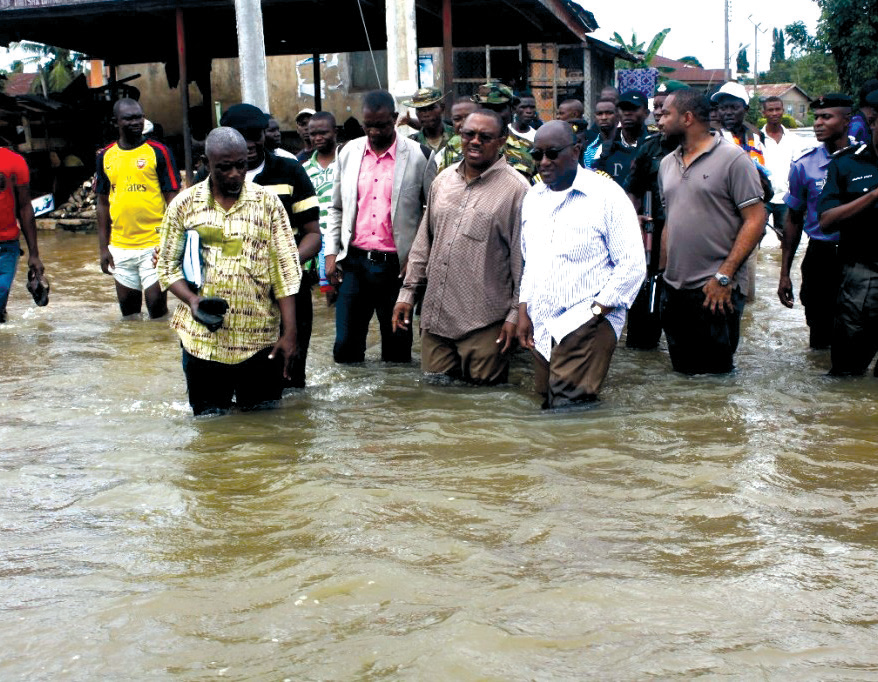There are no products in your shopping cart.
| 0 Items | £0.00 |


NIGERIA Meteorological Agency (Nimet) officials have warned states in the north central and southeast geo-political zones to expect more flooding over the coming weeks as the deluge brought about by the River Benue overflowing its banks is not over yet.
Over recent weeks, Nigeria has suffered from a deluge that has come to characterise the rainy season, with the situation exacerbated by the River Benue overflowing its banks. Due to the fact that neighbouring Cameroon opens its dams on the river in the rainy season, eastern Nigeria suffers the effects, with Benue, Kogi and Anambra states in particular being hard hit.
Professor Mansur Matazu, the Nimet director general, said the flooding was the result of rainfall which might have reached its peak. Speaking at the opening ceremony of the Hydro-Meteorological Status and Outlook System workshop in Abuja, he said it could also be the result of opening of dams and other water-holding facilities.
“You remember, we issued the forecast in February and we followed up with the monthly updates that we are going to have above normal rainfall in most part of the country. So, in terms of the rainfall-induced floods, we have seen the peak but remember we told you that this rainwater gets collected into the reservoirs and dams, and whenever they are filled, it gets overflown.
“So presently, on September 13, the Lagdo Dam was released, other dams were also released, so what we are witnessing now is riverine flooding. From the information we are getting, we are going to see more flood and now the rains are concentrating in the north central and the south eastern states so, that will be a combination of short duration, high intensity rain, with riverine flooding," Professor Matazu added.
He further said it was expected that water-associated risks were going to intensify in the coming years as the full weight of climate change began to bear on our earth. Professor Matazu added that in Africa, water-related hazards such as flood and drought had become a major cause of food insecurity, strains on livelihoods, health risks and conflicts in many parts of the continent.
“Water-related challenges facing governments at all levels include securing water supplies, designing appropriate water governance schematic, sustaining the management of trans-boundary basins, managing flood and/or drought as well as ensuring the protection and conservation of our ecosystem. It has been observed that one of the major factors to effectively manage water resources and address some of the above challenges is the availability of hydro-meteorological information and products targeted to serve the needs of the different sectors,” Professor Matazu added.